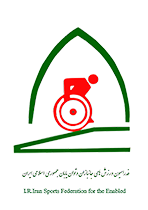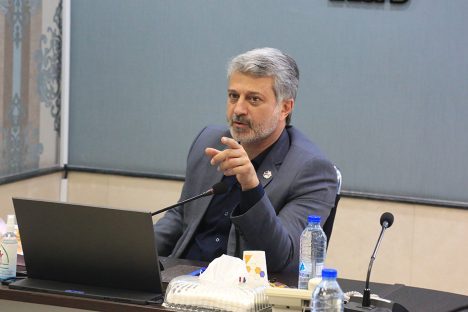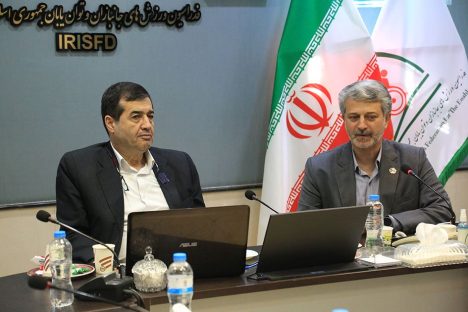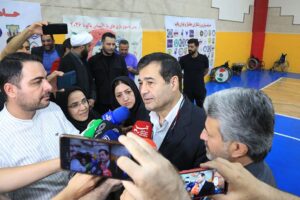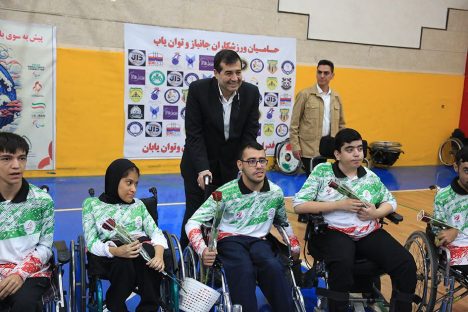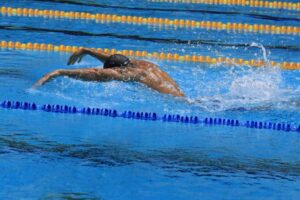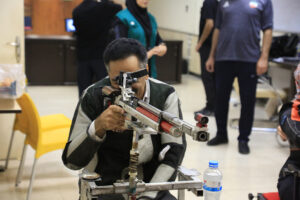The Federation has designed a holding structure through which various companies and organizations can participate economically in supporting the federation’s activities.
This holding was established in cooperation with Sharif University of Technology and was officially signed recently. Although companies participating in this holding may not gain direct financial returns, they receive promotional benefits. For example, Zamzam Company provides the federation with several billion bottles of free water, and in return, the companies sponsoring athletes with disabilities can have their logos displayed on each bottle of water.
In an interview with Alborz Varzeshi, Dr. Koohpayeh Zadeh, President of the Federation, emphasized that economic contributions from the holding can transform the atmosphere of sports activities for people with disabilities. One of the federation’s goals is not only to fulfill routine duties but also to raise societal and sports managers’ sensitivity toward the physical and cultural activities of people with disabilities. While sport is essential for everyone, it is particularly necessary for persons with disabilities, and achieving this requires investment and support from various sectors.
According to statistical data, people with disabilities constitute 11 percent of the population. To support and serve this substantial segment, necessary facilities must be established. Through partnerships and investments, the federation aims to prepare the disabled community for productive engagement. Providing necessary equipment and facilities enables these individuals to support themselves and their families. For example, an athlete who can acquire an expensive wheelchair or specialized bow for archery through investment from the holding will be able to generate income through sports activities and pursuing a championship path, becoming less dependent solely on federation assistance. This partnership model acts like “magic beans” — planting seeds today to reap rewards in the future.
Responding to a question, Dr. Koohpayeh Zadeh noted that 43 percent of Iran’s Paralympic medals have been won by people with disabilities, underscoring their remarkable intelligence and potential. Helping them thus yields highly valuable returns.
He also pointed out that last year, there were 42,000 injured and disabled individuals in Iran, with road accidents causing 80 percent of disabilities. For a country with a population of 90 million, this is a very high figure.
Fortunately, Dr. Donya Mali has fully committed to supporting people with disabilities, believing in the necessity of justice among all athletes in the country. Nevertheless, alongside the development of community sports, it is essential to provide adequate infrastructure for elite sports as well.
Regarding upcoming programs for the Federation of Veterans and Disabled People, Dr. Koohpayeh Zadeh said that two major competitions are approaching:
The Islamic Solidarity Games in Riyadh, featuring athletics and weightlifting events for people with disabilities.
The Para-Asian Youth Games in Dubai, where athletes will participate in eight sports including archery, athletics, swimming, boccia, arm wrestling, 3×3 basketball, and more.
He added that the leadership of disability sports in the Asian Paralympic Committee (APC) is held by Mr. Majid from the UAE, while he himself is responsible for medical affairs at the APC, and Dr. Kargari serves as Mr. Majid’s advisor.

